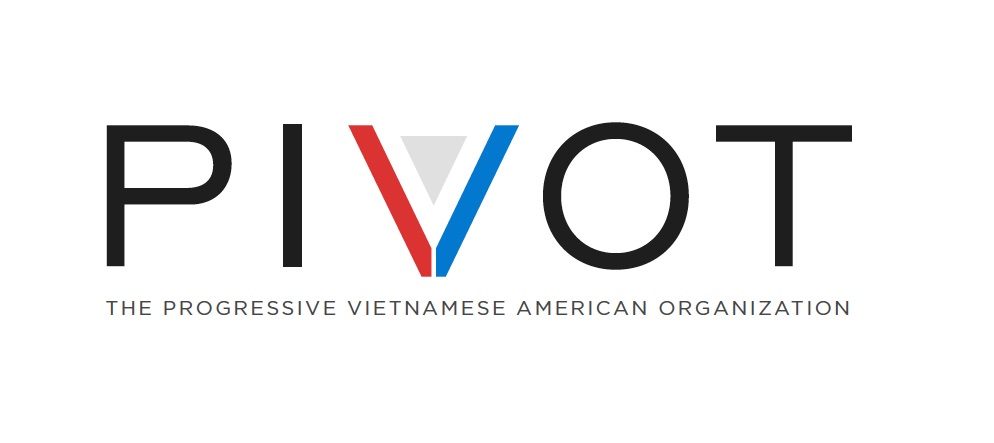November 18, 2019
Mary Nguyen, PIVOT Member
Originally published in The Mercury News and republished here with permission from the author.
There have been many occasions when I caved to the pressure to be “white” to conform with societal norms. In kindergarten, I chose to pack Lunchables after a “lunch box moment” occurred when a classmate claimed chà bông looked like hair. On Lunar New Year, I refused to wear my favorite áo dài to school for fear of standing out.
When my parents spoke Vietnamese or called me by my Vietnamese name in public, I flushed red with embarrassment. To retaliate, I’d respond in English, despite knowing this could perpetuate a barrier between my parents and me.
However, after finding a space to explore my identity, I became aware of my family’s immigration story and developed a greater appreciation for my heritage and history.
After the fall of Saigon, Vietnamese refugees conquered the merciless sea to escape the communist regime—but this freedom came with an unintended cost. They had to give up bits of their identity to reestablish their lives. As a result, later generations of Vietnamese-Americans question the value of culture in today’s society.
Despite being American, our story isn’t bound to this land. I’m a daughter of Vietnamese refugees and the rich history and experiences of my people goes beyond the tale of the American Dream. Vietnamese people will always be con Rồng cháu Tiên, children of the dragon, grandchildren of the immortal, and physical distance from my roots cannot erase this identity as long as I acknowledge and own it.
I struggled to incorporate my Vietnamese identity because society upholds that being American meant being whitewashed. The bitter reality is that this definition of “American” is in fact a carefully crafted product of historical efforts to maintain white superiority and shape the American narrative to fit the expectations of the elite group.
This country used white paternalism to validate the removal of Native Americans from their ancestral homelands and justify cultural assimilation. Although not as blatant as the effort to “kill the Indian and save the man,” the trend to whiten America still manifests today—even when we don’t realize it.
Race equity trainer Tema Okun suggests that white supremacist culture overwhelming shapes how we manage time, make decisions, organize our work and institutions, perceive ourselves and others, and interact with one another. Through structural racism embedded in policies and societal norms, minorities are pressured to conform to standards of the dominant culture in order to adapt and survive—but it’s time to stop feeding into this false facade.
Joi Barrios-LeBlanc, a lecturer from UC Berkeley’s Southeast Asian Studies Department, explains that “the process of colonialism is complete when people accept the colonizer’s culture to be superior to their own.” While the past cannot be changed, embracing our ethnic identities and realizing value in our own culture allows us to dismantle white cultural standards. All ethnic and racial groups have values, histories and beliefs that are just as valid, and we must increase exposure to these diverse experiences.
Explore your own identity and don’t be afraid to maintain cultural values that conflict with dominant societal norms. It’s as easy as pronouncing your last name the correct way, practicing cultural traditions, speaking your mother tongue in public or celebrating cultural holidays. These changes may seem small, but by embracing our ethnic identities, we resist the erasure of our history and take back the power to write our own narratives.
We can ensure the process of colonialism remains incomplete by acknowledging and tolerating our cultural differences. Let’s bask in the beauty of our vibrant diverse communities because this is what constitutes the unique, authentic American narrative. After all, we are a nation of immigrants.
